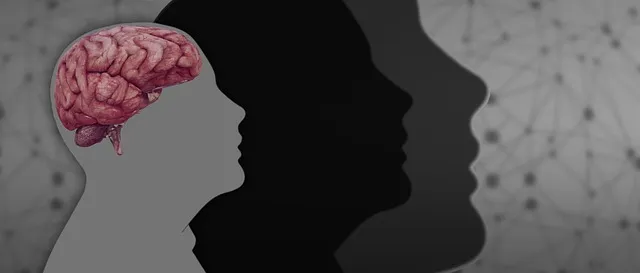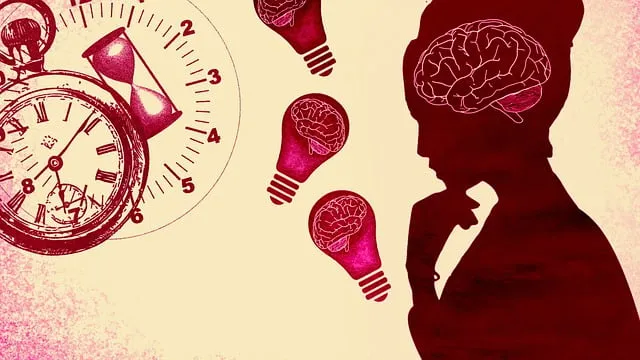The Kaiser Permanente Mental Health Center Englewood prioritizes building resilience through its RFM framework, integrating exercises for inner strength development and self-care practices. By combining mental wellness journal exercises with tailored strategies, the center equips individuals with tools to manage stress, anxiety, and difficult emotions, fostering adaptability and enhancing overall well-being. These initiatives, including risk assessment and management planning, empower people to navigate life's challenges effectively, reducing depression symptoms and promoting lasting empowerment.
“Resilience is a powerful tool in navigating life’s challenges, and Kaiser Permanente Mental Health Center Englewood has recognized this with its innovative RFM (Resilience, Flexibility, and Mastery) program. This article explores how resilience-building exercises can empower individuals to cope with stress and adversity. We delve into the practical application of RFM techniques, offering strategies for mental well-being. Through real-world examples from Kaiser Permanente’s programs, we highlight the transformative impact these initiatives have had on clients, fostering resilience and enhancing their overall mental health.”
- Understanding RFM: A Framework for Resilience at Kaiser Permanente Mental Health Center Englewood
- The Role of Resilience Building Exercises in Fostering Coping Mechanisms
- Implementing RFM Techniques: Strategies and Activities for Effective Mental Well-being
- Real-World Impact: Success Stories from Kaiser Permanente's Resilience Programs
Understanding RFM: A Framework for Resilience at Kaiser Permanente Mental Health Center Englewood

At Kaiser Permanente Mental Health Center Englewood, we recognize that building resilience is a cornerstone of mental wellness. Our RFM (Resilience, Flexibility, and Mindfulness) framework offers a comprehensive approach to enhancing our patients’ ability to navigate life’s challenges. This innovative model integrates various exercises designed to foster inner strength development and self-care practices.
Through the guidance of our mental wellness journal exercise, individuals are encouraged to reflect on their experiences, emotions, and thoughts, promoting a deeper understanding of themselves. This introspective practice empowers patients with valuable tools for managing stress, anxiety, and difficult emotions. By combining these techniques with tailored self-care strategies, Kaiser Permanente Mental Health Center Englewood aims to equip our community members with the resilience needed to thrive amidst life’s ups and downs.
The Role of Resilience Building Exercises in Fostering Coping Mechanisms

Resilience building exercises play a pivotal role in equipping individuals with effective coping mechanisms, especially in navigating challenging life circumstances. These exercises, often incorporated into programs at mental health centers like Kaiser Permanente Englewood, aim to enhance an individual’s ability to adapt and bounce back from adverse situations. By fostering inner strength development, these initiatives empower people to manage stress, anxiety, and other mental health challenges more effectively.
In the context of a comprehensive mental health policy analysis and advocacy, resilience exercises contribute to building resilient communities. The Risk Assessment for Mental Health Professionals framework highlights the importance of such interventions in early prevention strategies, enabling individuals to develop robust coping strategies before mental health issues escalate. Through regular practice, these exercises can transform challenges into opportunities for growth, leading to improved overall well-being.
Implementing RFM Techniques: Strategies and Activities for Effective Mental Well-being

Implementing RFM (Resilience, Flexibility, and Mastery) techniques is a powerful strategy for promoting mental well-being, as advocated by experts at the Kaiser Permanente mental health center Englewood. These exercises are designed to empower individuals, especially mental health professionals, to navigate life’s challenges with enhanced resilience. By incorporating self-awareness exercises, such as mindful meditation or journaling, practitioners can develop a deeper understanding of their emotions and triggers, fostering better coping mechanisms.
Additionally, risk management planning is an integral part of RFM. Mental health professionals can benefit from creating structured protocols for handling stressful situations, which boosts their confidence in managing client cases effectively. Regular practice of these techniques not only enhances personal resilience but also improves service delivery at the Kaiser Permanente mental health center Englewood and other healthcare facilities.
Real-World Impact: Success Stories from Kaiser Permanente's Resilience Programs

At Kaiser Permanente mental health center Englewood, resilience programs have made a significant real-world impact. These initiatives, designed to enhance coping skills development and promote overall well-being, have been instrumental in empowering individuals to better manage stress and adversity. Success stories abound, with participants reporting improved ability to cope with life’s challenges, reduced symptoms of depression, and increased resilience.
One notable program focuses on teaching effective strategies for stress reduction and emotional regulation. By incorporating mindfulness practices, cognitive behavioral techniques, and social support networks, the center has helped individuals build resilience that extends beyond their time in treatment. These programs not only prevent relapse but also foster a sense of empowerment, enabling participants to navigate life’s complexities with greater confidence and flexibility.
Resilience is a powerful tool for navigating life’s challenges, and the Kaiser Permanente Mental Health Center Englewood has pioneered this through its RFM (Resilience, Flexibility, and Mastery) program. By integrating resilience-building exercises into their mental well-being initiatives, the center equips individuals with effective coping mechanisms to enhance their overall mental health. The success of these programs is evident in the real-world impact stories shared, demonstrating that fostering resilience can lead to profound personal transformations. This approach not only benefits individuals but also contributes to creating a more resilient community, especially within the context of Kaiser Permanente’s commitment to holistic mental healthcare.






